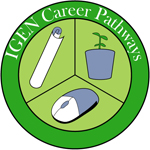by David Hales, President, Second Nature
 The opening words of the Renewables Global Futures Report, “The future of renewable energy is fundamentally a choice, not a foregone conclusion given technology and economic trends”, are music to the ears of any educator.
The opening words of the Renewables Global Futures Report, “The future of renewable energy is fundamentally a choice, not a foregone conclusion given technology and economic trends”, are music to the ears of any educator.
At our best, we teach that the fundamental goal of sustainability is the freedom to choose our own future, and that education at its most essential is about creating the capacity to make wise choices.
The Renewable Energy Network for the 21st Century, and report author, Eric Martinot, have created a report that is enlightening and empowering. It provides both context and perspective on one of the most critical aspects of the transition to sustainability.
When we founded REN21 following the Bonn Conference on Renewable Energy of 2004, we were convinced that clean, abundant, predictable, and affordable renewable energy was necessary to fuel societies that aspire to being sustainable, stable, and just. We knew the promise was real, and we all underestimated how rapidly it would be realized.
In 2004, global investment in new renewable energy capacity hovered around $40 billion; in 2011 it exceeded $260 billion – more than the new investment in fossil fuels and nuclear energy combined. China, a renewable energy backwater in 2004 is the global leader. Most of the new power capacity added each year in Europe is from renewables.
The purpose of this report is not to predict the future. It is to give substance to the range of choice which is ours. It is a composite picture of the possible.

 The California Higher Education Sustainability Conference (
The California Higher Education Sustainability Conference (
 Second Nature
Second Nature

 Bowie State University has undertaken several endeavors to go “green” and increase its sustainability through its
Bowie State University has undertaken several endeavors to go “green” and increase its sustainability through its  My name is
My name is  The opening words of the
The opening words of the  Finalists were chosen from an outstanding pool of peer institutions, based on their commitment to climate and sustainability leadership and successful implementation of related programs, education, and partnerships.
Finalists were chosen from an outstanding pool of peer institutions, based on their commitment to climate and sustainability leadership and successful implementation of related programs, education, and partnerships. 



